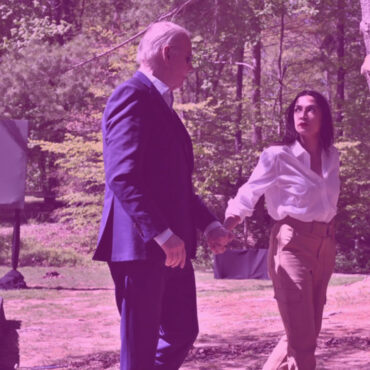Listeners:
Top listeners:
-
play_arrow
CRUSADE Channel Previews CRUSADE Preview-Call 844-527-8723 To Subscribe
Christopher Laurence Examines Morality & Gaming Part 3: A Dialog, Part 2
In part two of my dialog with film-maker, designer, gamer and Catholic CJ Alley, we examine magic and occultism in gaming, and other moral issues. As I progress in these discussions, and as I continue delving into this issue with these articles, I myself notice further problems with elements employed in video game design — not uniformly — but frequently enough to give me pause. I find myself perhaps becoming more hard-line against these things. Just since and through having this discussion, I may have come to some new conclusions, which I plan to elucidate in a future article. For now, enjoy the second half of my discussion with CJ Alley.
Christopher Laurence: Ok, so once again, you’d say that the issue really is with the person, not with the medium.
CJ Alley: Yeah, definitely. I get that something like Final Fantasy has a lot of “Mother Earth” stuff eventually in the narrative. And I guess it depends on the formation of a person, even if they’re poorly formed, I don’t think… Well, what would you say?
Christopher Laurence: Well, it’s important that you bring that up, because this is one of the ones that tends to bother me, because of things like what you said; “Mother Earth” references. And I don’t know if I’m just being too strict, but something about that — and also anything where you’re summoning entities — it sets off something in me. And I know it’s a game, and obviously, you know, I’m in full possession of my faculties, or at least I think so, so I can make those distinctions. I understand it’s not real, but something about engaging in that, even in a game, especially having it as one of the fundamental aspects of the gameplay, doesn’t sit right with me. Am I being too strict? Am I being too — I don’t know the right word, I can’t think of the right word. But I think you know what I’m getting at. Am I getting my hackles up for no good reason? Or is there something to that? Is there something to my unease?
CJ Alley: It depends on.. I guess it’s a game-by-game basis. I grew up with Pokemon and that kind of stuff, so I just kind of think of them as animals. Or when it comes to magic in a lot of games, unless it’s specifically occult stuff, which I haven’t really found, just me personally, I haven’t gotten those kind of games where it’s like the real world. But I just think of magic as a sort of technology or some sort of nature that’s inherent in the world, you know, not like a sigil or something, when we think of what actual magic is. If that makes sense.
Christopher Laurence: It does. I was just about to ask you about that, because magic is the next topic I wanted to get into. So, again, I’ll give a personal example; I’m someone — you may have seen this online — that consistently rails against Harry Potter. But if I’m railing against Harry Potter and I’m then playing games where it’s possible for characters to use magic, do I make myself a hypocrite? Or is there some nuance between the two that can kind of redeem my point of view?
CJ Alley: Yeah, definitely. So, I haven’t listened to Fr. Ripperger’s talks on the specific Latin or made up Latin that she (J.K. Rowling. Who is a witch, by the way) uses that is reminiscent of actual spells. I just didn’t like Harry Potter. I think I stopped after the fourth book just because they… The world revolves around him in an unhealthy way and he gets away with things he shouldn’t. If you’ve read some of them, I think you get that. The books are written at a fun pace and she’s very descriptive and she hangs a mystery in there for all the books. As a character, his history has a fascinating thing to it that I get people would understand, but she kind of hedges it in this way where it’s unhealthy.
And the distinction between… so, in “Terraria” (2D sandbox game, 2011), for example, there’s some stuff in it that’s on the borderline. I let my girls play it because they mostly just build things. But there are some bosses and stuff that if I played them — I do it when they’re not around, because they’re like scary eyeballs and monsters and whatnot. And there’s magic involved. Whereas I explain the magic to them if we do it like, “OK, so this is magic in a game.” Lord of the Rings is really easy because there really isn’t any [magic], you know, we’ve talked about that. Or I do a good job of describing how that is used in there; magic is just this elemental thing that is in some fictional stories, and real life magic is something that you don’t want to get into because it’s something entirely different.
Christopher Laurence: Ok, so just to maybe try to put a bow on the Harry Potter thing. So I agree with you. I think that in the Harry Potter books, magic is more of a morally devastating and dangerous tool to enact what is already a disordered morality. (For clarity’s sake here, magic is, in every circumstance and every form, intrinsically evil. It is, in reality, recourse to demons, and is condemned by the Church and the Scriptures.)
CJ Alley: Oh, that’s a good point. That’s a good point. Right, they use it to live their lives and make everything easier.
Christopher Laurence: Yeah, it’s the morality that’s the actual problem, that’s already disordered. And they’re just using magic — which, again, in itself is evil. But they’re wielding it to bring about their disordered desires more often than not. Now, what about something like — you mentioned Dark Souls, and the covenant’s in Dark Souls, and I’ve tried to form a coherent standpoint on those covenants and I find myself having a difficult time. So, obviously, the first thing that stands out is the use of the word covenant. Right? I don’t know what to make of that. A lot of times I have this kind of knee-jerk reaction to things just because I can be kind of reactionary when it comes to terms that are used.
CJ Alley: Right. They kind of get tossed around.
Christopher Laurence: Right. That’s a big problem. So I have to imagine that there was a deliberate choice to use that word, and then I don’t know what I should make of that. And then also the nature of some of the covenants, again, may be troubling, but then only if we’re conceding the point that these things have real world implications. And I’m not sure that we are. So, we kind of go back to the start. So it’s almost like it’s OK to engage in these activities in-game because it’s not real. However, someone has made the deliberate choice to use this terminology and make it so that it is appealing to use in-game in a disordered way, and that that in itself is somehow problematic. Does that make sense?
CJ Alley: Yeah, yeah. If they’re making deliberate use of the language of covenant, there are other uses for it that would make it less problematic. But yeah, if somebody is in full command of the etymology of something and what they’re trying to accomplish with a game, it’s worth looking into it more. I’ve always wondered — maybe games like this now where you can play the bad guy, just drop yourself into somebody else’s world — Dark Souls kind of does that, but in a more organic way. And just because it’d be kind of fun to be somebody that is hindering the gameplay of somebody else. But also there’s different roles of different multiplayer games where you could overly enjoy… get a kind of sadistic enjoyment out of that.
Christopher Laurence: Right, right. And that’s definitely a problem. You know, and in regards to Dark Souls in particular, now, you know, I’m a big fan of these games, but I’m sure this is evident to you, too. I don’t think that Miyazaki (lead designer for the Dark Souls series of games and their spin-offs) does anything which isn’t deliberate. He seems to be a kind of very detail oriented designer and game creator. Now, a lot of his influences he’s spoken about, but there’s definitely an overarching theme of kind of dark fantasy. But at the same time he is a big fan, supposedly, of Tolkien. So I have to imagine that knowing the importance that Tolkien placed on language, obviously, that some of that may have been carried over into Miyazaki’s design philosophy and therefore his deliberate use of certain terminology is purposeful. Now, I don’t mean to attribute malicious intent to him, but is this kind of, perhaps indifferentism, to the usage of these terms just as much of a problem as if he was purposefully putting them in there to be used in a derisive kind of manner? Like, is it dangerous to just, as you say, kind of throw the terms around because you think they sound cool, when they have deeper meaning and implications and some of them even are deserving of reverence, which games in particular, due to the interactivity, can diminish? Firstly the reality of the spiritual battle, and also then diminish the reality of of reverence due to aspects of the Faith?
CJ Alley: Yeah, some things definitely. If you dive into something like Dark Souls, and people like to do it just because of the nature of the game, It’s like he played Ico (3rd-person action/adventure game [although that doesn’t really describe it..] 2001) and Shadow of the Colossus (3rd -person action/adventure game and follow-up to Ico. Equally hard to describe. 2005) and thought, “you know what, if we could put in a bunch of filler in there so you can actually know what happened in those places…” But ultimately, it’s disappointing. There’s lots of things there that have Catholic trappings, like the covenants, they remind me of an order you would join, and then decide, are you going to be a good person and serve this kind of charism? That’s where my mind of goes with it. But, if you ultimately look into the million dollar word for the origin of the whole universe, it’s disappointing, because you don’t really know what happens. You know, there’s no hint to a greater things. Just that there were dragons and then there was something else, which brought inequity. And you’re never going to get more than that. So there’s no, like, divine revelation in his world. It is interesting to see over the narrative of the games, charcter‘s memories decay about what happened, because when I play them it really reminds me about the real world and how we lose our sense of — we lose our history and how things really began. And all these different cultures and religions, false religions, pop up. But ultimately, it’s this disappointing thing at the center of (these games) for me.
Christopher Laurence: Well, it’s interesting because I kind of wish that Miyazaki had drawn more on Tolkien and less on things like “Berserk” — which I do not recommend anyone listening to this look into — or the works of Lovecraft, because it seems to me that those two things kind of lend themselves to this nihilistic worldview that’s definitely prevalent in dark souls, whereas Tolkien’s is nothing but hopeful. And I think that that’s missing in the “Souls” games. So I question the ordering of his priorities being drawn again, not in a malicious way, but just being more drawn to the nihilistic, the bleak. And especially Bloodborne (Miyazaki-designed offshoot of the “Dark Souls” series, 2015) is absolutely a Lovecraftian game. And it’s very oppressive. I mean, in some ways more so than the Souls games, because I think there’s something about cosmic horror that transcends the levels of bleakness possible in any high fantasy, because it’s kind of this idea that there are these unimaginably powerful cosmic entities, that are not God, and that exist to — and this is a lot of Lovecraft — to basically psychologically torture you. Just their very appearance drives people mad, and playing that out without any kind of — to use the trite expression — light at the end of the tunnel. I have to imagine that for people that aren’t spiritually well-formed, that this must have some kind of detrimental effect. I mean, even in the Souls games, there’s no good ending, right? Not not really.
CJ Alley: Yeah, it’s inherent. Even if you choose to light the fire (one of the possible endings for these games. It’s complicated.) it’s still bleak for no really good reason.
Christopher Laurence: Right. So is that kind of thing a problem for… OK, here’s where I’m going to go with this: I am disturbed by people that are obsessed with modern horror movies. I think there’s some kind of disorder going on. I hope you’re not obsessed with them, but I don’t think you are. I find that there’s something wrong, because unlike the horror films of yore: Frankenstein, the original Dracula series, The Mummy, The Wolfman, the horror movies now are nothing but but deeply disturbing, often psychologically oppressive, over-the-top, violent —
CJ Alley: Are you talking about like, “It Follows” or something like “The Babadook” kind of thing.
Christopher Laurence: All of them. Right? Everything from “Saw” to “Babadook” to anything in between. Even — and I enjoyed this movie, but it is incredibly depressing — “The Mist”. I think it was very well done. But my goodness, was it hopeless. Absolutely hopeless. Incredibly emotionally devastating.
CJ Alley: I was talking to my friend a couple years ago, about the nature of movies. You can tell if the filmmaker has a belief in God or an afterlife just based on the world in their movie. Like, you watch something and you realize in the world they’ve created in this movie, there is no God, there is no afterlife, there is no redeeming grace. It’s not explicitly saying that. They don’t say anything about God. You can just tell by the very nature of the movie, whereas you watch something like “Lord of the Rings” or something like “True Grit” or “No Country for Old Men”, I think there is a God in those movies. Right? And I think that is present in video games where you get to go a little deeper, like a “Shadow of the Colossus” or “Chrono Cross” (Japanese RPG, 200) where you get a sense of, OK, what is this world? And if it’s not bleak or, you know, like in these modern horror movies where the whole dread is that there’s nothing and we’re bad people and we deserve all these horrible things that are going to happen to us.
Christopher Laurence: You see, this bothers me also, because it seems the medium of video games is another place where it would be so easy for Catholics in particular to make inroads, because they could go anywhere, narratively, in a game. And the nature of the interactivity means that you can make it immersive and you can impart these ideas. In other words, I have a hard time getting people I know and people in my own family to sit down and read “The Lord of the Rings” because it’s a hefty undertaking. If they’re just not interested in it, they’re not going to do it, because they see, you know, my multiple copies of that giant tome sitting on the coffee table and they think, “Well, that’s a big chunk out of my life that I’m not going to give up”, no matter how much I tell them it’s worth it. Because I had this conversation. “Did you like the movies?” “Yeah.” “OK, well, imagine the movies only ten thousand times better with like four hundred percent of the stuff put back in that they took out.” But it’s a hard sell. And I want people to read them because not only because they’re just awesome, but as you said earlier, there’s so much Catholicity wound throughout that whole story, whether you know it or not, that you’re imbibing perhaps unwittingly. And I feel like games are another aspect of popular culture that’s easier to get people — especially young people, obviously — I mean, I have nephews that play games almost 24 hours a day and unfortunately they play some of these terrible — and maybe we can touch back on this in a minute — some of these terrible horror games that are clearly directed at kids. And I think that these are the kind of things that have serious, negative psychological implications. Games like “Five Nights at Freddy’s” (Series of disturbing games revolving around demonically possessed animatronic characters. First installment released 2014) and “Bendy and the Ink Machine” (Equally disturbing classic-cartoon influenced horror game, also featuring possession and a cartoon devil 2017).
Well before we get into that, I just want to finish this. I feel like I’m complaining all the time about Catholics getting involved in popular entertainment, — and it seems like gaming is a medium ripe with opportunity to convey these morals and ideals — and yet the only time I’ve been aware of Christians making video games we get those horrible, you know, Bible Adventures games or stuff like that. But I’m not aware of — maybe you are — I’m not aware of any games that are actually compelling to play that have Catholic ideas. I mean, do you know of any?
CJ Alley: No, I don’t.
Christopher Laurence: Right. And that might be because the nature of big game companies is that they kind of follow along with everything else, so they become more “woke”, more social justice oriented, etcetera, as we go on. So even when they have a property like “Lord of the Rings” in their hands, you’re not going to get those Catholic values, which were at the core of Tolkien’s creation, coming across in it. For example, I played “Shadow of Mordor” (action/adventure game set in Middle Earth, 2014) and “Shadow of War” (sequel to Shadow of Mordor, 2017) like crazy because they were Tolkien games that were actually very good. They’re a lot of fun. They’re very well made. They look good and the combat flow is similar to the Arkham Games (series of Batman action games. First installment released 2009). Really good stuff. But the people that made it do not understand Tolkien at all. Because there’s none of the values in there, and in fact, it succumbs to that kind of hopelessness that arises in these other games. It’s a bleak game. So they missed the mark on that.
CJ Alley: That’s why they set it all in Mordor.
Christopher Laurence: Right. And in fact, one of the ways that you become very powerful in the game, as your character, is by kind of giving yourself over to the darkness.
CJ Alley: Yeah, I had read that.
Christopher Laurence: Maybe we’ll finish with this and then hopefully we can pick this up at some point in the future. So I have nephews that play a lot of these very disturbing horror games — “Five Nights at Freddy’s” and “Bendy and the Ink Machine” — that are clearly marketed towards kids. But I find them very disturbing and that there is something diabolical about them. But again, am I being overly sensitive about this stuff or is there something wrong there?
Cj Alley: Well, getting into occult in general.. Like I said, there’s elements of “Terraria” that I let the girls play because they just build stuff, but if they got into it more or they were more interested in figuring out the later mechanics, like, “OK, now what?”, then we’re just going to go back to “Little Big Planet”. Because there’s stuff in “Terraria” that I don’t need them seeing. It’s not necessarily overt or anything, it just leads to more questions, you know, like questions about possession. And those things are unnecessary — they don’t have to be a boss or a bad guy in a children’s game. It can be a wolf. It could be, you know, whatever.
Christopher Laurence: Right. Yeah. Or like you said, it’s OK to have a kind of evil boss character if the means to dispatch it is not also evil.
CJ Alley: Definitely. But there are these all different questionable ways.
Christopher Laurence: Right. So if they’re using occultism to combat the occult, there’s something morally problematic there. Well, this has been great. I hope we can actually do this again at some point in the future. There’s a lot to this subject. And you’ve had some great insights on it. And it’s stuff that I don’t think has been explored extensively at all. And I’m hoping to try to remedy that. So if you’d be up to it, maybe sometime in the future, we could pick this back up.
CJ Alley: Yeah, for sure.
Christopher Laurence: Ok, great. Well, thanks so much. And I’ll be talking to you soon.
CJ Alley: All right. Thanks again, Chris. This was great.
Christopher Laurence: Thank you so much. God bless you.
Our Readers And Listeners Keep Us In Print & On The Air!
Click here to subscribe to The CRUSADE Channel’s Founders Pass Member Service & Gain 24/7 Access to Our Premium, New Talk Radio Service. www.crusadechannel.com/go
What Is The Crusade Channel?
The CRUSADE Channel, The Last LIVE! Radio Station Standing begins our LIVE programming with our all original CRUSADE Channel News hosted by Ron Staffard. Coupled with Mike “The King Dude” Church entertaining you during your morning drive and Rick Barrett giving you the news of the day and the narrative that will follow during your lunch break!
We’ve interviewed over 300 guests, seen Brother Andre Marie notch his 200th broadcast of Reconquest; The Mike Church Show over 1200 episodes; launched an original LIVE! News Service; written and produced 4 Feature Length original dramas including The Last Confession of Sherlock Holmes and set sail on the coolest radio product ever, the 5 Minute Mysteries series! We were the ONLY RADIO outlet to cover the Impeachment Trials of President Trump from gavel to gavel!
Now that you have discovered The Crusade, get30 days for FREE of our premium News-Talk Radio service just head to:
https://crusadechannel.com OR download our FREE app: https://apps.appmachine.com/theveritasradionetworkappIti-
Did you know about Dialog? If you are interested in supporting small business, be sure to check out the official store of the Crusade Channel, the Founders Tradin Post! Not to mention our amazing collection of DVD’s, Cigars, T-Shirts, bumper stickers and other unique selection of items selected by Mike Church!
Written by: Christopher L
Similar posts
SEARCH
NOW PLAYING
Upcoming shows

ParrotTalk With Mike Parrott – Rebroadcast
WEEKDAYS 9:00-10:00PM
8:00 pm - 9:00 pm
The Mid-Day Show – Rebroadcast
WEEKDAYS 9:00 - 10:00PM
9:00 pm - 10:00 pm
Art Bell Classics
11:00 pm - 11:59 pm
SIGNUP FOR DAILY PROGRAMMING UPDATES
Copyright BlackHat Studios dba The CRUSADE Channel, All Rights Reserved





Post comments (0)